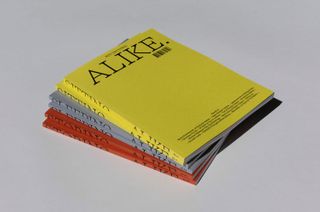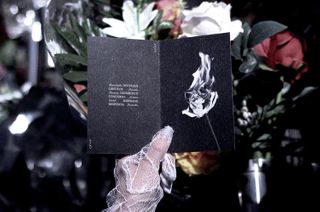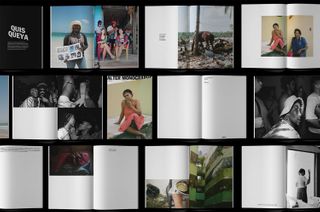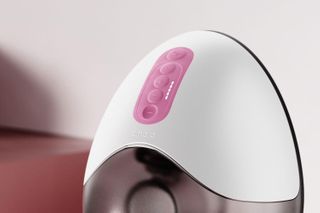- The Laus Awards are structured in five categories and this year Elisava participates in three of them (Graphic Design, Digital and Advertising) with more than twenty projects
- The presence of numerous projects by Elisava students in the sector’s main awards is a key indicator of the emerging talent in our company
If in a previous UCampus report we exposed the upward trend of recent projects by students of Elisava's Degree in Industrial Design Engineering, highlighted in the main national and international competitions and awards in the sector, we want to review here some works that aim high, signed by students of the Degree in Design and some masters of the Barcelona School of Design and Engineering.
If we talk about national design awards, it is inevitable to refer to the ADG Laus Awards for Graphic Design and Visual Communication, which, following the line of recent years, have once again selected numerous projects by Elisava students. A good thermometer and a key indicator of the emerging talent in our house that is part of the founding objective of the Laus Awards: to promote design and visualise its cultural and social importance, as well as to support the profession and future professionals in the sector. We review below the nominated projects.

Graphic Design Category
This category, which is the one that traditionally brings together the most nominated and awarded projects, this year accumulates up to 10 projects by Elisava students.
We find from 'Okàn', by the students Josefina Bull-Figueroa, Paz Masi, Denise Szternberg and Josefa Palma Esplugas, a brand of chocolates that seeks to raise consumer awareness of the child labour that often takes place in the cocoa fields; to 'I won't be hombre for dinner', by Andrés Ramírez Ruiz and Camila Joaqui, which questions gender roles and expectations by dismantling the traditional association between woman and kitchen; or 'Dear Tears: crying as an act of resistance', by Helena Elizondo, which uses the technique of embroidery to make visible the act of emotional crying, often considered taboo in a society that exalts joy.
On the other hand, 'IMO-8', by Anna Filella, Berta Monfort, Ariadna Mir and Rubén Méndez, proposes a poster campaign that criticises consumerism and capitalism; and 'RA[]*MÉ', by Beatriz Pérez, Marina Subirats, Laura Agulló, Giovanna García and Iban Cayero, proposes a perfume that encapsulates everyday life with the aim of smelling, seeing and feeling the beauty of chaos.

We also find the book 'Aly Arvense. Our Ally', by Ann Griffin and Lia Araújo, which questions the concept of "truth" within fiction; or several editorial pieces: 'Punto y coma', by Miquel Gracia Sanjuan and Laura Oliva-Rifó, about the need to connect people and take up real conversations; the biannual magazine 'Alike', by Camila Joaqui and Claudia Murillo, which analyses the relationship between cultural context and furniture in our everyday activities; or the quarterly publications 'The Weather Report', by Lia Araújo and Mads Ven, which establishes a visual parallelism between the seasons and happiness, which it describes as "inner climate"; and 'Eludita', by Miquel Gracia Sanjuan and Andrés Ramírez Ruiz, which analyses the role of machines in an increasingly dehumanised society.
The works address diverse themes: from environmental awareness or child labour to the questioning of gender roles and expectations, the criticism of consumerism or the vindication of crying as a natural emotion
Digital Category
In this category we find 7 Elisava projects nominated: 'NOTFINE', for example, by students Lia Araújo and Sara Figuretti, proposes an online platform as a space to share and learn about mental health. Focusing on human passions and concerns, this platform aims to address a topic that society tends to silence or neglect.

Archaeological Museum of Digital Trash (AMoDT), by Andrés Ramírez Ruiz and Camila González, is an editorial platform that explores the impact of the excessive accumulation of data, like a digital landfill, through exhibitions on identity, big data, xenofeminism and hardware. The platform seeks to put into focus and visualise the social and environmental problems that have arisen as a consequence of the current digital lifestyle, which, as we already know, also generates differences and, moreover, pollutes.

'AtOS' by Neta Barstava and Victoria Fronza explores the reality of the digital age, in which smartphones have changed the way we relate to each other. The mobile phone is almost a part of us and this project develops an experience to explore the limits between the physical and digital worlds.
Along the same lines, 'Mooore', by Laura Oliva-Rifó and Carolina Marchitaba Arce Pérez, proposes a digital publication that tackles the excesses of today's society, from overpopulation to overproduction or ultra-processed food; while 'I Will Never Stop Controlling You', by Emília Masato, questions the supposed control we have over social networks and the mobile device, exposing our behaviour and the infinite time we dedicate to them.

‘Smoking in the 21st Century', by Mads Vine and Sarah Micheli, departs from the previous ones to investigate smoking in 20th century society through a platform created with visual resources such as NFTs that fuse reality and pixels. Finally, the Graphic Elisava Degree Show 2022 website has also been nominated in the Digital category, an online portfolio that shows the projects of the students of the latest edition of the master's degrees in Graphic Design and Editorial Design.
Advertising category
In this category, the nominees were 'A line to be new, again', by Antía Durán, Adrià González, María del Sol Gómez and Claudia González, a communication campaign that reinvents shoe designs for Camper Recrafted; ‘Soberano', by Carolina Lleida, Rubén Méndez, Judith Beltran, Agueda Colom, Marta Barbosa, a project that seeks to reposition this brand and bring it back to the popularity of previous decades, and 'Symbiology', by Alicia Guerrero, Rocío Blanchod, Carla Helmbrecht, Julián Pineda and Alba Carbonell, a fragrance that creates a visual and narrative universe that seeks a connection with the Earth.
Graphic Design - Packaging Category
Finally, in the category of Graphic Design - Packaging, we find 'Moca't', by the student Núria Perea, which proposes a dialogue between the fragrance and the packaging. The Laus Awards 2023 will be presented at the ADG Laus Night, which will take place on Thursday 8 June at Disseny Hub Barcelona.

Other international distinctions that corroborate the talent that has emerged from Elisava
Recent international awards include the two winners of SABIC's CIRCUL-A-*THON competition, held in May in Saudi Arabia. The students of the three nominated projects ('Hipcare', 'Amaia' and 'Lazo'), all of them from the Master's Degree in Product Design and Development, travelled to Saudi Arabia and the first two have finally won: 'Hipcare', by María Songel, María Paula Rodríguez, Lucía Solinís, Arsenio Andrea Meomartino, Júlia Robledo and Eva Vera, the first personalised 3D printed splint for the treatment of hip dysplasia in babies; and 'Amaia', by Jorge González, Elena González, Javier Martínez, Tania Bonilla, Carlos Casal and Maitena Pemán, a hospital electric breast pump designed to make breastfeeding a comfortable and painless process.
The international projection of Elisava students is confirmed by their presence in awards such as the IF Design Student Awards, the ADC*E High Potentials or SABIC's CIRCUL-A-THON, held in Saudi Arabia
It is also worth mentioning that undergraduate students Sara Barcons, Carlos Álvarez and Helena Elizondo have been selected in the ADC*E High Potentials among the most talented young European creatives; and that the projects 'Fix' and 'ATOM', by students from the Undergraduate Degree in Industrial Design Engineering, and 'Gil', from the Undergraduate Degree in Design, have won the iF Design Student Award. Discover them here.